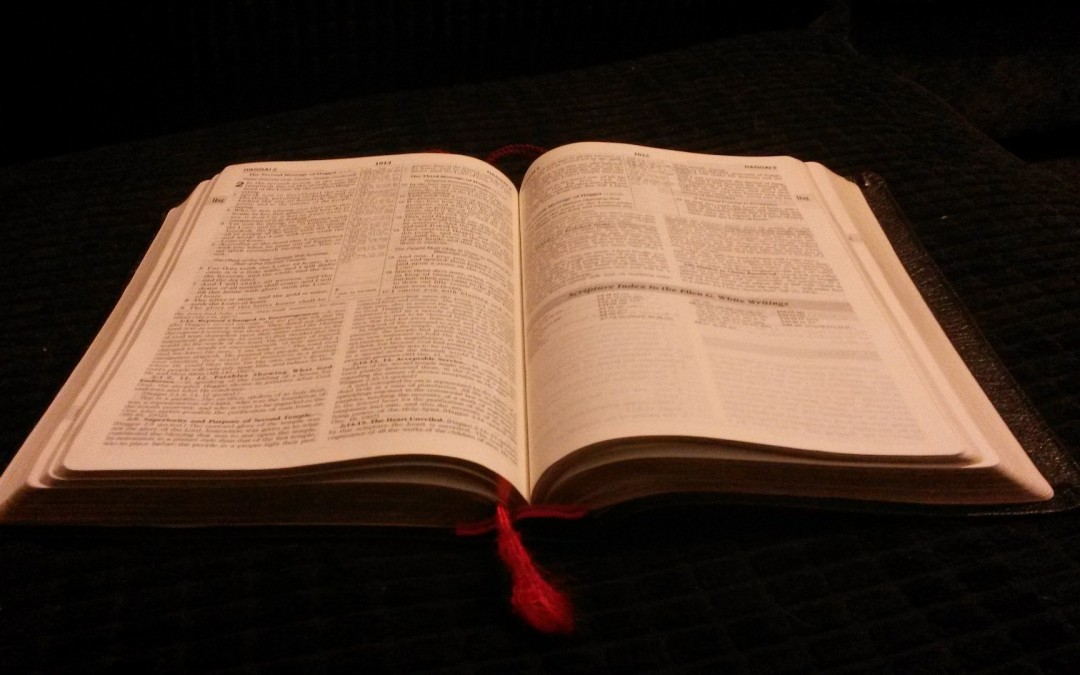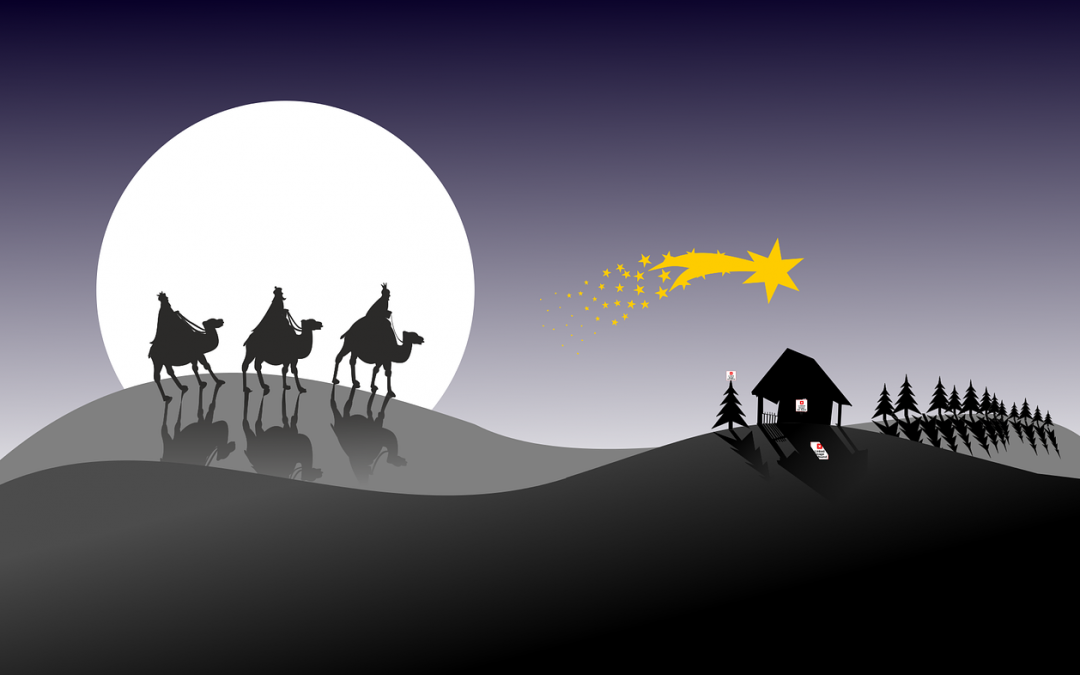
by church news | Jan 28, 2017 | Sermons
There are two things going on this morning: baptism and unity, all sauced with a serendipitous clerical joke involving the family names of those being baptised here and at St Luke’s. Here, two Bishops are being baptised, while at St Luke’s a Crockford is being added to the family of God. Why this is hilarious, you may well ask, but the reason is simple: if you want to know where your bishop went to university, or what her middle name is, you can look them up in Crockford’s Clerical Directory – and yes, there is a direct family link to that most influential of clerical printers – enough to make us all weep with laughter, were our lives not a whole lot richer than the purveyors of clerical humour.
Now, baptism and Christian unity are unlikely bedfellows, as one of the causes of division in the Church over the centuries has been two radically different attitudes to baptism – is it a sacrament that allows God to work for the rest of the individual’s life, or is it the public acknowledgement of a faith that has already been growing for some time before? Anglicans, of course, hold both views, but that is only to be expected. What we are doing today is very much the former – a public sacrament that puts God’s Holy Spirit directly into the lives of these children who are being baptised this morning, after which their knowledge of God will grow through the help and support of their parents, godparents and this worshipping community. But catch-up baptisms are not unknown – the oldest person I have ever baptised was 81, and she had just never got round to being baptised, even though she had encouraged many others to take that path, and baptism after conviction by faith is still an option.
For us this morning, what we are about is a combination of what John the Baptist had been doing in Israel prior to Jesus appearing on the scene, and Jesus calling his disciples. John’s baptism was one of repentance, a washing clean and giving a fresh start – we are doing that this morning. Jesus’s call to Peter & Andrew and James & John was a life-changing shift in direction – from the business of fishing to the business of soul-catching – and we are doing that as well this morning, for from today on, these children’s lives will never be the same – they have been called by God, this morning, by name, and God will never let go of them, and will keep on calling and chivvying and nudging and teaching and leading them all the days of their life.
And that is why Paul is so adamant that no one in the church in Corinth should be claiming to belong to a different or better grouping because of which person had baptised them. The person who did the baptising was merely the agent of God the Holy Spirit, Paul insists, and not a cause for either boasting or judging others.
This could go on still, if we wanted to. I met one of the Barn Ladies Group members who had been confirmed by Archbishop Cosmo Laing, who was standing in for the Bishop of Southwark because he lived in Kew at the time. There are some others around here who can claim to have been confirmed by Archbishop Desmond Tutu, at St Luke’s, a good few years ago – are such people more spiritual than others, or is their confirmation a bit more special than ours, carried out by just a Diocesan bishop or his suffragan? Of course not, but that was the sort of thing that was messing up church life in Corinth at the time, and Paul had to intervene to sort it out. Likewise, our baptism ought to be our great unity in Christ, and for many different strands of Christianity it is, but for others it has become a barrier, and we must do all we can to cross over that barrier, by love and mutual understanding.
One of the ideas we are going to be exploring as Christians together in Kew on Wednesday, up at the skool at 10am, is this idea of crossing barriers that we create ourselves. The Corinthian Church had created those barriers, we could so easily do it, but our calling at our baptism ought to lead us away from such thoughts and words, to actions of grace and generosity, where we love and include others rather than try to keep them out because of difference.
That having been said, our calling comes at a price. Peter & Andrew, after they are called to follow Jesus, leave their business, their livelihood behind. James & John do the same, and leave their father and workmates too. Now, I am not saying that these children will do the same to their parents, I am simply flagging up the nature of Christ’s calling – he calls us to be active in sharing his love, in demonstrating what God is like, and sometimes that is easy and wonderful, and sometimes that is hard and costly. May these children know only joy as they share Christ’s love through their life and their deeds, but we do have to be realistic. And it is in the field of Christian unity that some of the hardest acts will have to be performed: deeply held convictions that create barriers will have to be worked through so that those barriers can be crossed together, for the sake of Christ; entrenched positions and years of history may have to be compromised, for the sake of Christ.
Today’s baptisms are causes for joy and celebration, let there be no doubt. It is a wonderful thing to baptise children, and to share in the family’s joy. It is a wonderful thing to share in those children’s development as children of God, and may we all play our part in welcoming them, praying for them and encouraging them to grow in the faith. May our example of worship and teaching stir up Christ’s call in them, and may they know the fullness of Christ’s love, in their own lives and in their family life, all their days. Amen
by church news | Jan 7, 2017 | Front Page
Joseph and the Amazing Technicolor Dreamcoat at The Barn Church, Atwood Avenue, Kew
A colourful, one-hour performance suitable for all the family by the Kew Community Choir.
Saturday 14 January 6pm
Sunday 15 January 3pm & 6pm
Tickets £10 (£5 concessions)
Families £25 (2 adults, 2 children)
Booking enquiries: Mary Noyes noyesmary@hotmail.com

by church news | Dec 6, 2016 | Sermons
It has been a while, hasn’t it?! A while since I have stood here and talked, a while since last we spoke of Advent, a while since the world was in such a torment as we see today. And all you really want to know about is what I got up to on my sabbatical – but you are going to have to wait for that, it will come out in dribs and drabs, little by little, case study by case study. A valuable time was had, though. I am much refreshed, refocused, bursting with ideas – I see your delight – and stories to tell. Of New Hampshire’s sugar maples, on fire in their autumn colours, of humpback whales off the coast of Massachusetts, of standing only 30 feet from a common loon…. pretty much like this morning, then.
But seriously…. we are in Advent, a new year for the Church, a new year for worship, a new year for prayer, a new year of anticipation of the work of God in our world, and us as part of that action. A year when once again we hope that swords will be beaten into ploughshares, and that nations will not learn war any more. But it is also a year of great uncertainty, as a result of a series of votes taken here and in the USA, and upcoming in France and Germany. Uncertainty for an ever-growing group of people, who fear discrimination and rejection, uncertainty for our liberal values of welcome, inclusion and tolerance. Advent sits uneasily between joyful anticipation and the uncertainty of what sort of intervention a returning Christ will entail.
The referendum and the American Presidential election have very effectively divided people at the same workplace, one against another, and people in the domestic context. Distrust simmers below the surface, which way we voted still matters to both sides, and it will only get aggravated by future developments. The spectre of fascism rises in France, a country where its devastating effects can still be remembered by some of its citizens, and where which side an individual or a village took in the resistance is still a live issue. How could they vote that way, we wonder, but we thought that about the referendum, and about Donald Trump.
No, we must be ready, we must be prepared, and we must do the work of prayer and thought and analysis, so that Christlike values of love, welcome, tolerance, inclusion and the like can and will remain at the centre of our community, can and will remain at the centre of our congregational life, can and will remain at the centre of our personal lives. And that is Advent living.
I read a play, during my sabbatical, that touched on the Flood: The Epic of Gilgamesh, a verse drama by Edwin Morgan of the ancient near eastern myth of the Sumerian king, Gilgamesh, and his wanderings. He comes across the man who built the boat and saved himself and the animals from the flood, Ziusura is his name, who, because he passed through the destruction, has remained for centuries the age he was when the flood came. Gilgamesh arrives in Ziusura’s country dressed in rags, weary, disorientated, lacking understanding. He leaves refreshed, clean and clothed, a king renewed in body and soul. Meeting the man who had survived the flood enables him to return to his kingdom an enlightened ruler, capable of welcome and inclusion, tolerance and joy in the other.
This is not an accidental parallel with Noah. This is an archetypal working through of trauma, both nationally and individually experienced, to rebuild a world corrupted by introspection and greed. The new world of Ziusura and Gilgamesh, of Noah and his family, is given a new opportunity by God to forge a new relationship with each other and with him. God limits himself in his promises to Noah – no more flooding the earth – with nothing but worship required from Noah and his family. Ziusura and his wife live out their days in joy and delight in the re-created order. The Advent message, however, is that God will act decisively when people are not expecting him to, and their surprise will be their pain, and their unpreparedness their loss.
I visited a number of social projects during my sabbatical as well as reading lots of plays – foodbanks, drop-in centres, winter night shelters – some of which were fairly recent in origin, others had been running for years and commanded budgets of £750k. A common theme running through them all was that simple, fluid management structures created a better environment for developing and sustaining the project, and that if parts of the management team – partners or trustees – had lost contact with the hands on work of the day to day experience, then the project suffered. At one project I visited, the staff had never met a trustee. At another, the staff member I spoke with had started as a volunteer, had been brought on as a trustee after a few years, and had then moved across to paid work within the project. The first project lead a hand-to-mouth existence, the second was flourishing, and has just branched out into the Wandsworth area.
The Church is a volunteer-based organisations, with a few paid professionals and a group of trustees/PCC members, and a field of work that is broad-ranging and forever shifting in emphasis and success. It alters with personnel, a moving population, groups of friends and reserves of energy and ideas. If we are to benefit as a parish from all the riches that are on offer to us with all of our people and our neighbours, then our working and management ways must be fluid and open and participatory.
I understand from Robin & Sarah that you have had a presentation on funding needs and practical assistance in the life of the parish, and that responses are coming in. Today, New Year’s Day, is a day of New Year’s resolutions, so, if you haven’t returned your response form, get it done today
I promised you dribs and drabs of my sabbatical, and you have had them. It has been light on jokes and heavy on serious issues, but this Advent is a crucial time for us to face up to the world, offer ourselves in prayer and service to God and his Church, and engage with the world in practical and life-changing ways. Maranatha! Come Lord Jesus.



